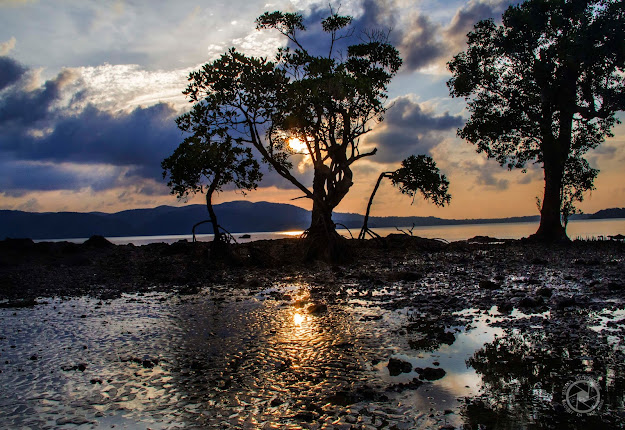Sustainable management & Gender roles: exploring the social ripples of Climate Change
Picture Courtesy: Rumna Mukherjee
A lot of global changes
to accommodate the needs for a greener future is gaining momentum; from containment of greenhouse gases to afforestation projects, species awareness, and
ban on illegal trades and practices are being robustly planned and executed. However, an issue such as environmental and climate change is often multifaceted with roots deep in various aspects
other than ecology and environmental sciences. One such lesser-known yet sought-after grey area is the
effect of gender roles on sustainable management practices— a shadowed aspect
encompassing existing societal facets of oppression and violence against women
which are frequently dealt apathy, indifference, or normalized.
Sustainable management in
association with gender roles is a unique connecting link that highlights and
brings together two foundational pillars of society: ecosystem and social
constructs of gender. A series of discourse that started in the early 1970s
about the varying consequences of gender gaps and their environmental impacts
and interrelations has now evolved into a major stream calling for active
participation and increased awareness in the field about existing loopholes,
and knowledge gaps of this relatively elusive and evasive topic circling the premise of women’s rights, underrepresentation in decision making, traditional
and cultural norms and socio-economic barriers. Inequality across various
aspects have prevailed for women since auld Lang syne across cultures. Orthodoxy
practiced across various cultures were seen to often be androcentric and
parochial; the son always getting a larger claim to the father’s property, the
married woman having no rights over her husband’s land and so on. Zeroing into
the context of sustainable management, rights to own land often ensures
contribution to resource availability, livelihood, and food security. The
addition of equality to this existing equation secures equal contribution of
indigenous women to afforestation practices in addition to equal rights to
economic independence and overall empowerment of a minority within a minority. Various
collaborative projects headed by global institutions such as IUCN, IPCC and
WEDO, have made considerable progress in various indigenous communities to
raise awareness and sensitize the communities by setting up a communal dialogue
between the villagers to understand the need to cast away traditional gender
and cultural norms in return for sustainable living standards and being the
custodians of change. Mounting evidence over the years has further highlighted
the dearth of women representatives or women leaders in national politics or in
ministerial portfolios. However, it has
been noted that countries with a relatively higher representation of women in
governance has shown better outcomes than others and even more so in the
context of sustainable development. Increased participation of women as
stakeholders of change ecosystem and coastline restorations across various
communities in Vietnam, Kenya, and Thailand has resulted in a much-anticipated
positive change, therefore, making their active involvement more of an organic necessity—
one that reminds me of Margaret Atwood’s brilliant saying, “We still think of a
powerful man as a born leader and a powerful woman as an anomaly.”.
There are no two ways
about oppression and exploitation have always been an unfortunately common occurrence
with women. A cursory Google search can list out a cornucopia of cases, findings,
data, and intensively researched articles listing out the causalities and their
analysis, but despite the number of efforts in the field the probability of
silencing dissent in both cis and transgender women remains shockingly high. With
prevalent gender discrimination, evidence suggests a high occurrence of violence
or crimes against women have been reported more times than not in order to subjugate
and/or reinforce traditional normality within them often leaving them as
victims of abuse in situations beyond their control. Establishing access to women
folk to services or organizations working in the HRD sector is an important milestone
yet to be achieved across many rural and socio-economically backward areas
around the globe. The transformative power of women involvement in a
multi-sectoral discourse specifically in the field of sustainable development
and climate crisis continues to remain an untapped potential in many countries;
although, with promising initiatives and ventures are being proactively drafted for a more gender-responsive approach in order to pave the way for holistic gender equity.
- Swagatama Mukherjee




Well written. Keep it up
ReplyDelete